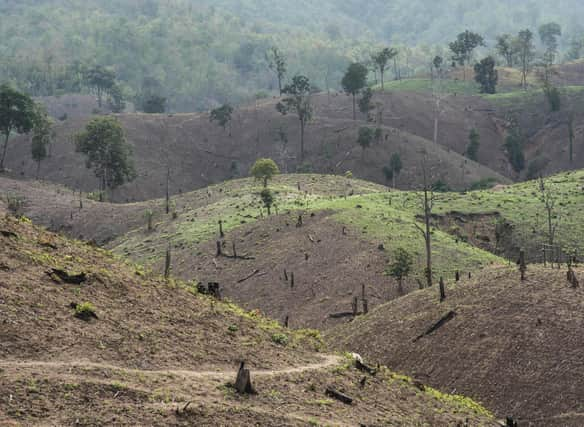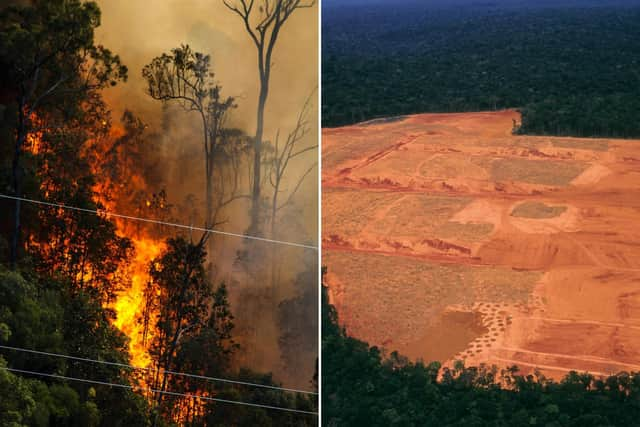What is deforestation? Deforestation causes, why it's bad and links to climate change and global warming


Marked every year since 2012, the United Nations (UN) International Day of Forests theme for 2022 is "forests and sustainable production and consumption.”
As fears over the future of the planet continue to grow, scientists warn that deforestation, and the rise of its causes, is helping to exacerbate the worst effects of climate change.


Advertisement
Hide AdAdvertisement
Hide AdAccording to the UN, the world had lost a net area of 178 million hectares of forest between 1990 and 2020 – an area approximately the size of Libya.
And with forests home to roughly 80% of the world’s terrestrial biodiversity and more than 60,000 tree species, sustaining them has perhaps never been so important.
Here’s what deforestation is, what causes it and its role in climate change.
What is deforestation?
Deforestation is the term used to describe the intentional clearing of forests through human or natural means.
The process has typically been used to clear woodland and forests to make way for grazing areas for livestock or for urbanisation and the expansion of housing developments.
But deforestation can also occur naturally through events such as forest fires, which can burst into life and rage across dry forests and landscapes during times of extreme heat, drought or lightning.
However, further causes and purposes for deforestation emerged and accelerated in the latter half of the 20th century with the growth of mining and logging – with the percentage of the world’s publicly owned forest environments declining since 1990.
While the rate of deforestation has reportedly slowed in recent years, some highly valuable areas of forest and rainforest, such as the Amazon, have seen deforestation continue apace.
Advertisement
Hide AdAdvertisement
Hide AdAs global leaders attended COP26 in Glasgow in November 2021 and pledged to put an end to deforestation by 2030, a report by Brazilian space research agency Inpe measured a 22% increase in deforestation in the Amazon between 2020 and 2021.
What are the causes of deforestation?
One of the biggest causes of deforestation is the expansion of agricultural production in order to provide more space for lucrative crops and allow livestock to graze.
In the Amazon and other areas of dense rainforest, habitats have been felled and large areas of forest cleared in order to allow space for palm oil production.
Further causes also include mining, illegal logging and wood extraction, and urbanisation – with many areas of forests cleared to provide space for growing populations and infrastructure.
How is deforestation linked to climate change and global warming?
The impact of deforestation on the planet and its longevity has alarmed scientists and climate experts for decades, with forests forming a key part of ensuring the earth’s survival by absorbing both carbon dioxide and greenhouse gases.
But when forests and trees are cleared or burnt, the carbon they store can be released back into the atmosphere as carbon dioxide – which a reduced amount of trees and forests will struggle to absorb while carbon dioxide production grows.
This will only increase the greenhouse gas effect and process of global warming, which is in turn speeding up climate change.
The World Resources Institute has previously determined that the contribution of deforestation in tropical countries would see it ranked third behind China and the United States for its carbon-dioxide emissions.

